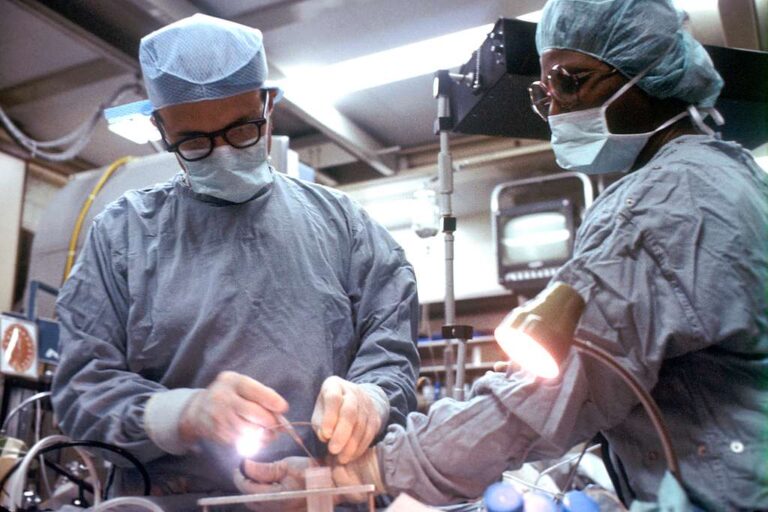How Board-Certified Cardiologists Ensure Comprehensive Cardiovascular Care

Cardiovascular health requires a specialized approach to diagnosis, treatment, and prevention. A board certified cardiologist plays a key role in maintaining heart health by offering extensive expertise. Let’s explore how these certified heart specialists provide comprehensive care to effectively manage and prevent cardiovascular conditions.
Specialized Training and Expertise
A board certified cardiologist undergoes rigorous training to develop a profound understanding of the heart’s structure and function. Beyond medical school, they complete specialized fellowships in cardiology, allowing them to gain in-depth knowledge of cardiovascular diseases. Their expertise enables them to diagnose and treat a wide range of conditions. This includes coronary artery disease, heart failure, valvular disease, and arrhythmias. By applying this advanced understanding, a cardiologist can develop effective strategies to address both common and complex heart issues, enabling a high standard of care.
Advanced Diagnostic Technology
One of the key strengths of a board-certified cardiologist is their proficiency with advanced diagnostic tools and techniques. These tools allow for accurate and thorough evaluations of heart function and health. An electrocardiogram (ECG) records the heart’s electrical activity, detecting rhythm abnormalities. Echocardiograms, using ultrasound, provide detailed images of the heart’s structure and valves.
Stress tests assess how the heart performs under physical exertion, while cardiac catheterization provides a detailed examination of blood vessels and heart chambers. Cardiac MRIs and CT scans produce detailed images of the heart and surrounding areas, supporting the diagnosis of various conditions. These methods help certified heart specialists pinpoint specific issues, paving the way for targeted interventions.
Personalized Treatment Plans
Following a diagnosis, a board certified cardiologist creates a tailored treatment plan designed to meet the unique needs of each patient. These treatment plans may involve a combination of medications, lifestyle changes, and medical procedures.
- Medications: Cardiologists prescribe treatments that help manage blood pressure, cholesterol, heart failure, or arrhythmias. These medications are carefully selected based on the patient’s condition to optimize effectiveness.
- Lifestyle Modifications: Patients receive guidance on adopting heart-healthy habits like improved nutrition, regular exercise, and smoking cessation. Such modifications help reduce risk factors and improve overall heart health.
- Interventional Procedures: For patients with blocked arteries, cardiologists perform procedures. Where necessary, they work closely with cardiac surgeons to support surgical interventions, enhancing outcomes.
These personalized plans make sure that treatments are both effective and sustainable for the patient’s lifestyle.
Holistic Care Strategies
Prevention is a fundamental aspect of cardiovascular care. Board certified cardiologists emphasize monitoring and managing risk factors such as high blood pressure, high cholesterol, and diabetes. Preventive cardiology aims to address these issues before they escalate into severe conditions.
A growing number of cardiologists are incorporating holistic care into their practices. For instance, nutrition counseling and stress management techniques are integrated into patient care to address overall well-being. This broader approach supports not only the physical health of the heart but also the mental and emotional aspects of a patient’s life.
Consult a Board Certified Cardiologist Today
Board-certified cardiologists bring substantial expertise to the diagnosis, treatment, and prevention of cardiovascular diseases. Their use of advanced diagnostics, creation of individualized treatment plans, and emphasis on prevention aid comprehensive heart care tailored to each patient. Consult a cardiologist to learn how you can achieve comprehensive heart health and address your specific needs.
- What to Expect When Visiting a Foot and Ankle Specialist
- Causes of PTSD
- The Link Between Plantar Fasciitis and Weight Gain: What You Need to Know
- How Pet Ownership Can Positively Impact Life with Fibromyalgia
- The Importance of Stretching and Flexibility in Sports Medicine
Dr. Emma Green is a health and wellness expert with over 10 years of experience in nutrition and fitness. Passionate about helping others live their healthiest lives, Dr. Green shares practical advice on wellness, nutrition, and sustainable living through LivingSpristine.






